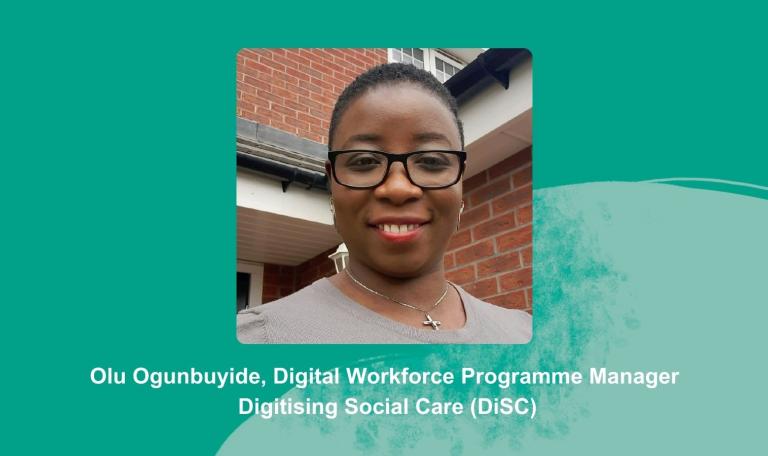Empowering women of colour to develop in digital

Olu Ogunbuyide, digital workforce programme manager for the Digitising Social Care Programme (DiSC) calls on colleagues from minority ethnic groups in social care to pursue personal development – for themselves and their organisations.
October is Black History Month and this year’s theme is 'Reclaiming Narratives' – something that resonates strongly for me. I started my NHS career in 2007 and moved to social care in 2019, working as a service commissioning manager for a local authority and I wish the Shuri Network existed back then.
The first NHS and care network of women from minority ethnic groups in digital health and our allies, the Shuri Network, exists to empower members to develop and succeed in digital.
I’m not a networker - I would describe myself as an introvert. But after just a year of membership, the network has boosted my confidence, my ideas and my career - and I would urge any woman of colour working in social care to consider getting involved. If you’re not in a ‘digital’ role but have projects and ideas in this area in mind, like implementing or getting the best out of a digital social care record solution, the network can help.
The Shuri Network offers training (supported by bursaries), mentoring, coaching and networking opportunities, all of which I’ve found both inspiring and practical. There is always someone in the network who has either done what you’re thinking of doing or can offer ideas, experience and alternative solutions. There is also a Digital Fellowship programme, which is open to anyone looking to develop skills and ideas in this area, not just to those already in a digital role.
Attending network events and taking part in the fully-funded two day workshop, has given me the space and confidence to challenge myself and others to always be asking what else can we do, what can we improve on. Therefore, I’ve made it my mission to shout about the Shuri Network in social care, which is under-represented compared to health, and increase membership from the sector.
Frontline care staff have such a lot on their plate and time is tight for everyone in social care, whether you’re caring for people directly or managing teams and settings. But prioritising personal development is as good for an organisation as it is for an individual. I know the quality of my work has improved as a result of my membership of the Shuri Network, and it offers us the chance to support and develop the people coming up behind us too.
There aren’t many women of colour in leadership roles in the health and social care. Finding people who look like us, supporting and learning from each other, will help us, our teams and ultimately the people we care for.